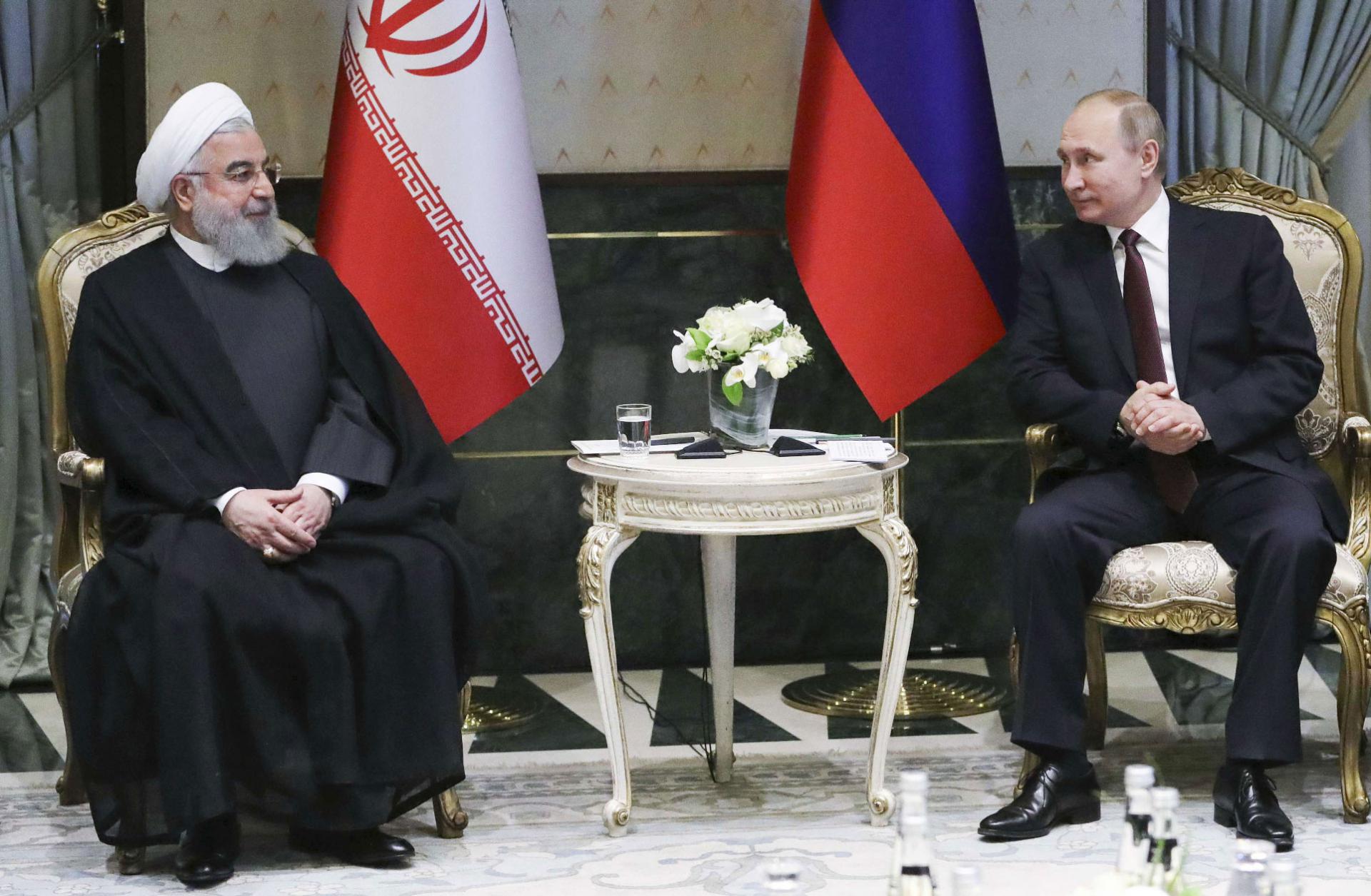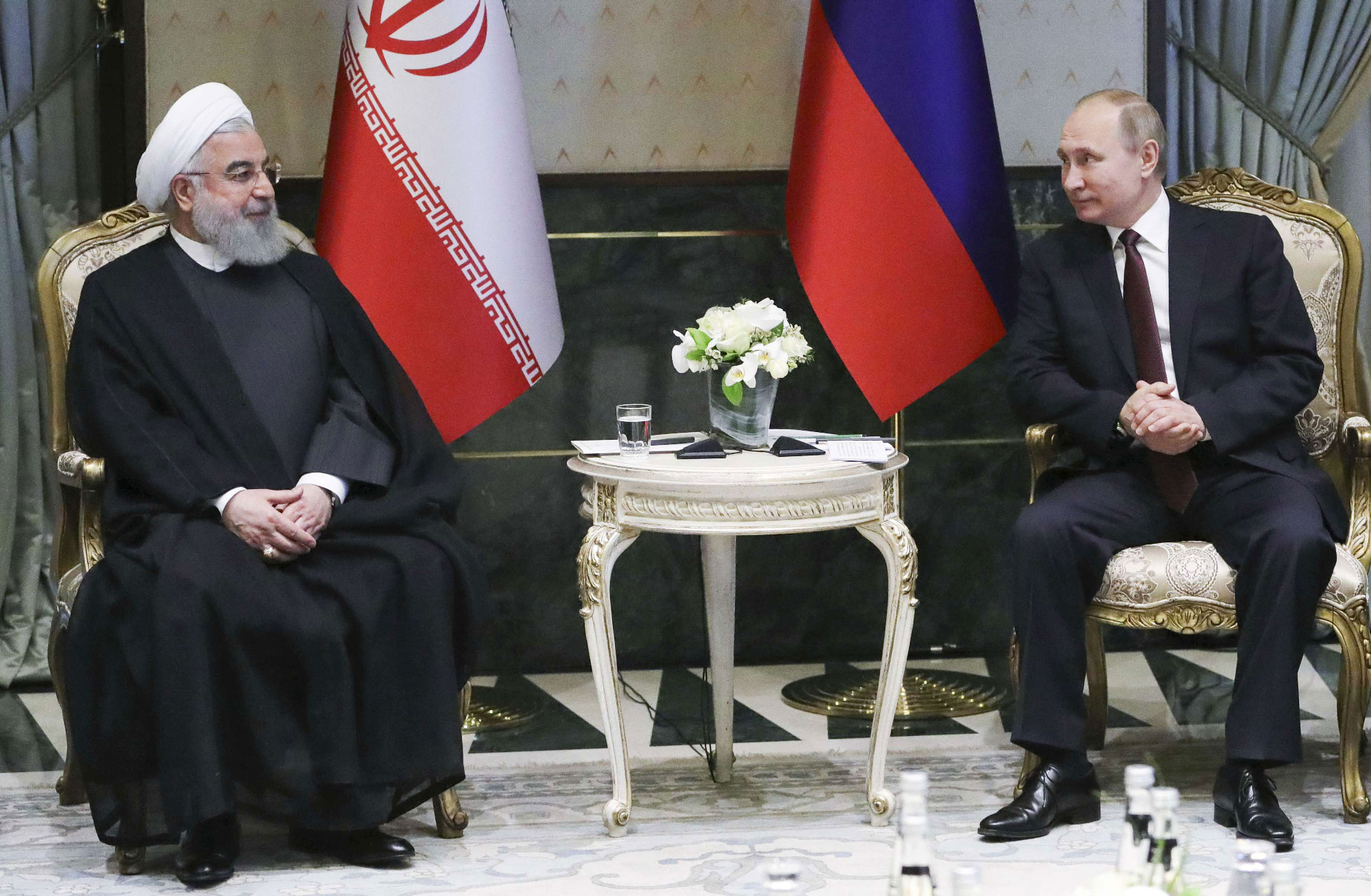Iran and Russia’s chess moves in Syria
Russian President Vladimir Putin said Russian troops stationed in Syria since 2015 “will stay there, for as long as it is in Russia’s interest for them to do so.”
It seems Russia’s new tsar is rather satisfied with Moscow’s success in managing the conflict in Syria. Russia has controlled the situation through coordinated strategies with its allies in Syria, Iran, Turkey and Israel.
Now that the Syrian wars are winding down, Russia is caught between Iran and Israel. It must double its efforts to prevent a direct confrontation between them on Syrian territory, which risks compromising its gains there. The stakes are more complex and higher than previously thought and can affect the balance of power in the region.
After seven years of armed conflict in Syria, the expected outcomes are crucial in deciding on the proportionate sizes and interests of the regional and international parties involved.
In this context, Iran and Israel have diametrically opposed interests. For Iran, Syria and Lebanon are key to its influence and presence in the Middle East. That, of course, does not sit well with Israel’s security concerns.
For Israel, it is out of the question that Syria becomes an Iranian base. Even though both countries are important to Russia’s plans for Syria, Moscow has, from the beginning, been mindful of Israel’s security concerns.
As tension between Iran and Israel builds, Russia seems unable to do more than call for restraint. Without Iran’s cooperation, Russia’s successes in Syria would not have been possible. At the same time, Russia’s relations with Israel are too important to risk jeopardising them.
Israel is Russia’s fourth leading economic partner in the Middle East, with bilateral trade estimated at $2.5 billion in 2017, compared to $1.7 billion with Iran. Agreements between Putin and Israeli Prime Minister Binyamin Netanyahu and Soviet-born Israeli Defence Minister Avigdor Lieberman have reinforced bilateral cooperation in intelligence and security domains.
Russia’s interest in Syria and its military presence there are not new; they go back to the Soviet and the Cold War eras. Syria is strategically located in the Arab world and has access to the Mediterranean.
Observers have linked Russia’s massive 2015 intervention to a request made by Iranian Major-General Qassem Soleimani but insiders in Moscow say it was Israel that pushed for Russia’s intervention in Syria and subsequently blessed Kremlin action. They cite Russia’s silence regarding the dozens of Israeli air and missile strikes inside Syria as evidence of the tight connection between both countries.
Another telling factor is Israel’s role in opening communication channels between Washington and Moscow via US President Donald Trump’s son-in-law Jared Kushner.
Both within the framework of Russia’s Astana talks and the specific tripartite relations between the United States, Russia and Israel, it was decided in 2017 to establish a fourth de-escalation zone in south-western Syria next to the borders with Israel and Jordan. Despite the personal blessing of both Putin and Trump, Moscow failed to make Iran and its proxy militias leave the designated zone, giving further doubts over Russia’s readiness to curb Iran’s actions in Syria.
The Trump administration had hoped that its cooperation with Russia in Syria would lead to breaking Moscow’s strategic ties with Iran. Instead, Russia experienced further embarrassment when an Israeli F-16 was shot down over Syrian territory last February.
As Tehran sought to build its presence along the Syrian-Israeli border, it did so on the assumption that it could count on Russian air defence for protection. However, without the Russian umbrella the mullahs had gambled on, Iran and its allies will find it impossible to remain in the zone.
Underscoring Russia’s bias towards Tel Aviv has been the lack of any response from the Kremlin to Israeli air strikes in Syria, as well as Netanyahu’s presence at Russia’s hugely symbolic Victory Day parade in May.
History teaches us that two foreign occupying forces cannot coexist in the same occupied territory. Therefore, Russia and Iran will soon have to part.
It is curious that Russia’s sudden change of heart towards Tehran coincided with Trump’s decision to ditch the Iran nuclear agreement and constrain Iran’s meddling in Arab affairs. Among the many draconian conditions imposed on Iran by the United States was withdrawing from Syria.
However, within Syria, while the Russian tsar remains master of the chess game, he will find it hard to drive Iran away from its Syrian prey.
Khattar Abou Diab is director of the Council on Geopolitics and Perspectives in Paris.
This article was originally published in The Arab Weekly.







